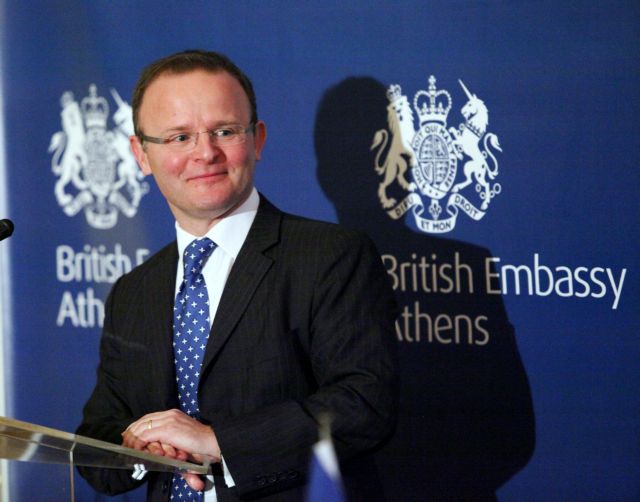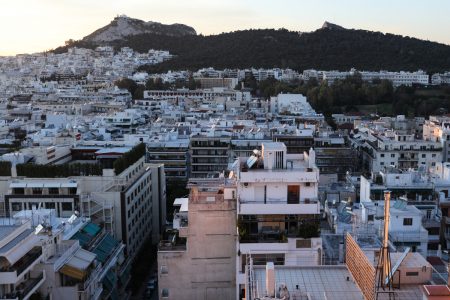2015 brings to the fore the issue of genocides because of two important anniversaries: last week was the 70thanniversary of the liberation of Auschwitz by the Russian army (on January 27, 1945), while on April 24thwill be commemorated the 100thanniversary of the Armenian genocide.
On the occasion of the International Holocaust Remembrance Day, the British Ambassador in Athens John Kittmer says in an interview that the risk of a new genocide is real in today’s world. He adds that education and awareness are the keys to prevent a new Holocaust in the future.
Seventy years after the liberation ofAuschwitz, do you see in today’s world any danger of repeating crimes against humanity on such a large scale?
«Without education about the Holocaust; without sensitive and educative commemoration of Holocaust victims; and without vigilance against extremist ideologies in the here and now, we cannot be certain that genocides will not be planned and carried out again. We are committed to preserving memory of the Holocaust because we believe it has universal meaning. It was an unparalleled event which changed our understanding of what it is to be human – including our terrible potential to destroy our own humanity. The key to prevention is education, understanding and vigilance».
Europesent the message «Never again»last weekbut how relevant is it in today’s European reality where racist and neo-Nazi parties are on the rise, persecuting immigrants, Muslims and other groups?
«What could be more relevant? The terrible events in France and Belgium, the tell-tale signs of anti-Semitism and racism in our societies (e.g. the desecration of monuments and attacks against places of worship), the rise of extremist parties with pernicious ideologies of hatred and fear – all of this shows why we must be firm in the defence of our human rights and our fundamental, humane values».
Jews in Europe say that the recent attacks against Jews on European soil (the hostage-taking at the kosher supermarket inPariswas the latest) remind them of the situation in the 1930s and may provoke a mass immigration from Europe toIsrael. Are they in such a big threat?
«A professional historian would be better placed to make that sort of comparison. As a diplomat, I am primarily concerned about the world as we encounter it now.We are disturbed by the resurgence of anti-Semitism in the West.We are committed to combat it. Prime Minister Cameron has recently said: “We will not allow any excuses for anti-Semitism in our country. We not let any form of prejudice destroy the multi-faith, multi-ethnic democracy we are so proud to call our home.” That is a clear an unequivocal statement. It is what we believe and it forms the basis of our policy. We want all Governments to be equally clear. That is one reason why we support so strongly the work of the IHRA».
How can the International Holocaust RemembranceAlliance(IHRA) contribute in keeping the message «Never again» alive and relevant not just in words but in practice?
«As an organisation with 31 Member States (incl. Greece) and 8 Observer Countries, the IHRA has a big role to play in spreading good practice between its members and ensuring that the flame of memory is kept burning. Through our commitment to research, education and commemoration, we want to increase understanding and spread knowledge about the Holocaust; teach new generations of children to understand what happened and to learn to cherish and protect our human rights; and to keep the memory of the Holocaust victims alive. For me, the key thing is to help young people and adults make the imaginative leap between the unimaginable and grotesque divs – 6 million people murdered in cruel and barbarous circumstances, of whom 1.5 million were children – and the reality that each one of those six million people was an individual, precious person, like you or me and those we love».





